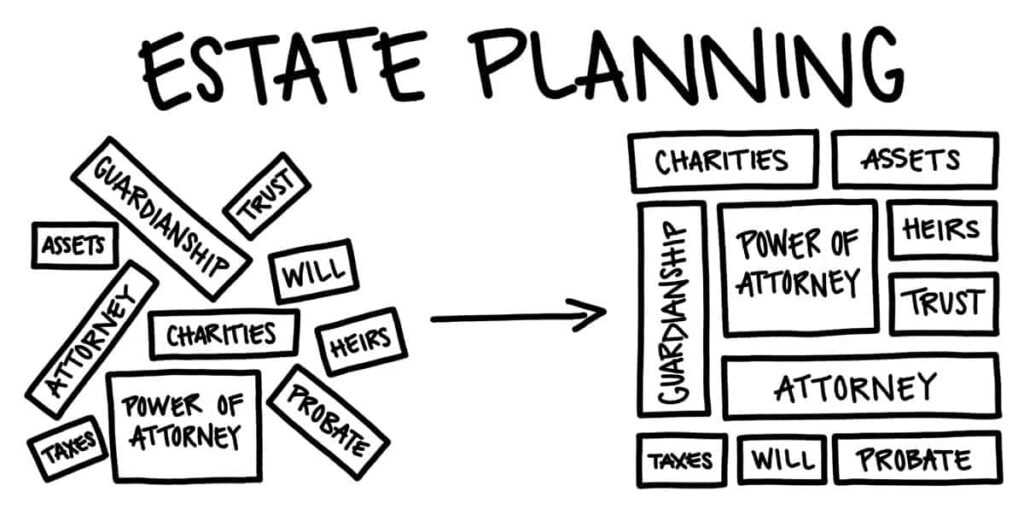As an Elder Law attorney, I am often asked “What is the biggest estate planning problem?”. My answer, “Failing to start”. The following is a list of issues to think about when preparing your estate plans. Almost all issues can be taken care of with a little thoughtful consideration, but the same issue can also create major problems if not dealt with in advance.
1. Probate – Court supervised administration of your estate is never a pleasant journey. Despite the helpful court personnel, there are still filing fees, lack of privacy issues, and long waiting periods before distribution. And that’s if all goes well.
2. Asset Protection – Many people do not take advantage of the asset protection opportunities that can be achieved with relatively basic estate planning. Creating trusts for spouses and children with the right provisions means your assets can be protected from claims of creditors and predators for years to come. While we hope that our children would not fall victim to divorce, this is one asset protection conversation that must be planned for.
3. Tax Planning – This is never an easy issue as the various tax systems don’t always line up with each other. Consider the tension between gift planning, (giving away some of your assets) to shelter appreciation by moving them outside of your estate, and loss of basis for capital gains purposes. While not easy, this issue can really cost you money if not properly handled.
4. Family Disharmony – Estate planning is a way for you to say you care about your loved ones. But selection of your personal representative or trustee can also stir the pot and create issue issues for those not chosen. Sometimes it is best to name a non-family member to be in charge of your estate. Giving thought to how to help resolve these conflicts or at least, not make them worse, can help to avoid family conflicts.

5. Attorney’s Fees – The best way to control legal fees is to incur them while you are alive and able to oversee the planning process. Failure to plan is likely to increase the total amount of fees paid. Especially if family members decide that fighting is the best way to resolve disputes after you’re gone.
6. Successor Fiduciaries – Make sure that you name back up personal representatives and trustees, or provide the beneficiaries with a way to fill a vacant role, so that a court proceeding is not required.
7. Contingent Beneficiaries – Make plans for your estate in the event that your immediate family members die and are unable to inherit your estate. Pick a charity or a group of more distant relatives or close friends.
8. Updating Beneficiary Designations – Life insurance and retirement accounts are controlled by the beneficiary designations you make when you purchase the life insurance or open a retirement account. They are most notably the small boxes you checked at the end of your application. Make sure these stay updated. We have seen more than once a policy which still names a client’s first wife or husband many years after a divorce and remarriage.
9. Joint Accounts – Often used as a convenience during life and a will substitute at death. Because these accounts go to the survivor, make sure that this lines up with your overall plan of passing assets to your heirs. Leaving money in a joint account for one child with the idea that they will spread the wealth around after your death can be a recipe for disaster.
10. Failing to start – Procrastination is probably the leading cause of problems in estate planning. Once a disability or death occurs, planning becomes very difficult and lots more expensive, if possible at all.

